A study done by researchers from the veterinary school at Ohio State University and published in August 2023, looked at shelter dog behavior after adoption at 7 days, 30 days, 90 days, and 180 days. The results look interesting, including how adoptions and data collection during the COVID-19 pandemic lockdowns and such affected outcomes and perspectives.
Here's a video version of this article. The automated close captioning isn't perfect, but it's mostly ok.
Shelter Dog Behavior After Adoption Study Overview
- 5 Ohio shelters (one open-access municipal shelter + four non-profit shelters) took part.
- 99 dogs and their families enrolled in study.
- Researchers used the Canine Behavioral Assessment & Research Questionnaire (C-BARQ) to collect data.
- Adoptions occurred between October 1, 2020, and June 1, 2021.
- 62 people (62.9%) answered all four surveys at 7 days, 30 days, 90 days, and 180 days.
- 62.9% of survey respondents had dogs in the past.
- 75% of those answering self-identified as female. (This is common in pet-related studies since women tend to do more pet care.)
- Nearly half had other animals in the home.
Important Shelter Dog Behavior Study Perspectives
These select few quotes from the published study's abstract and introduction provide good context for the results reported.
"... Little is known about dog behavior long-term after adoption."
"Entering a shelter is stressful for dogs which may inhibit or exaggerate behavior."
"Once adopted, another stressful adjustment period begins." The introduction goes on to explain how adopters really don't get "a full picture" of their newly adopted dog's behavior until after the dog fully acclimates and feels comfortable in a new place and with a new life. This adjustment period may take weeks or months.
"Many shelters conduct formal behavior evaluations, however, the evidence is mixed whether these tools actually predict future behavior after adoption."
All that said, then, researchers set a goal "to better characterize when and how behavior changes post adoption."
Image carousel below.
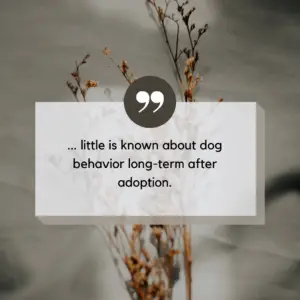



Shelter Dog Behavior After Adoption Study Results
Of the 99 dogs enrolled in the study, 7 got returned during the study period. That's 7.1%. That's much lower than expected. The estimated shelter dog return rate in the USA is around 15%.
Seven C-BARQ traits changed significantly from baseline C-BARQ (seven days after adoption). Most of them increased, which initially looks not great.
- Stranger-directed aggression
Increases reported at all time points. - Excitability
Increases reported at 90 and 180 days. - Touch sensitivity
Increases reported at 90 and 180 days. - Chasing behavior
Increases reported at all time points. - Training Difficulty
Increases reported at all time points. - Separation-related behaviors
Decrease reported at 180 days. - Attachment and attention-seeking
Decrease reported at 180 days.
Yet, "At 180 days, 100% of owners indicated their dog adjusted to the new home extremely or moderately well, with no owner indicating poorly/not at all. Also at 180 days, 93.7% rated their dog’s overall behavior as excellent or good, 6.3% as fair, and no owner reported poor/terrible. Seventy-five percent of owners indicated their dog’s overall behavior improved by 180 days, with 21.2% reported it stayed the same, and 3.8% reported worsening behavior."
Image carousel below.
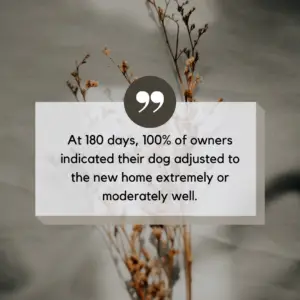



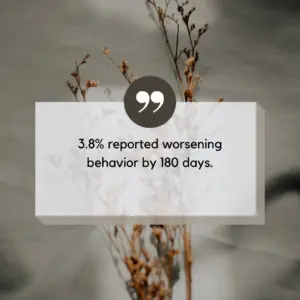
No Differences in These Shelter Dog Behavior After Adoption Categories
Researchers found no significant differences in everal shelter dog behaviors from the C-BARQ scale:
- Familiar dog aggression
- Owner-directed aggression
- Dog-directed aggression
- Stranger-danger fear
- Nonsocial fear
- Dog-directed fear
- Energy level
Shelter Dog Behavior After Adoption Study Discussion
Pardon this long quote from the study. I think it's vital to know and consider because I've been talking with my dog training and dog sport friends about a sense that we're seeing MORE aggressive dogs in our communities lately. We're hearing about more attacks. We're seeing more people struggling. We're wondering what the heck is going on.
"An important finding in this study is the increase from baseline in stranger-directed aggression at all three timepoints... The coefficient represents almost a half point increase in the C-BARQ subscale at 180 days from baseline. This change may appear small on an individual dog level, but if extrapolated to the general dog population, could represent a sizable portion of human directed aggression in the U.S. In addition to the increased stranger-directed aggression throughout the study, prevalence was also notably high with 76.9% of dogs showing at least some level of stranger-directed aggression at 180 days. Data is lacking on the overall prevalence of stranger-directed aggression in dogs and primarily focuses on the prevalence of dog bites, but has been estimated previously to occur in 5 to 9.2% of dogs."
That Big Gap??
The study's authors point to varying definitions of aggression, including that many only note dogs as aggressive after known bites.
Also, they mention how the COVID-19 pandemic lockdowns resulted in changes in human behavior that then resulted in increases in certain problematic dog behaviors. For all the benefits dogs provided to people during the first couple of years of the pandemic, they also caused additional stressors like these:
- Behavior problems
- Missed or limited dog training & socialization
- Trouble getting access to pet-care services, including veterinary care
- Skyrocketing dog bites to children
Shelter Dog Behavior After Adoption Study Conclusions
The published study wraps up with the following quote about shelter dog behavior after adoption and what we and others need to know:
"These results provide veterinarians, canine behavior professionals, and shelter staff a better understanding of the post-adoption behavior of dogs adopted from a shelter setting across the first six months after adoption. Owners can be counseled about what behavior changes to expect and when. By providing owners with accurate information on what behavior changes to expect, owners may have more realistic expectations on their dog’s future behavior. This may mean fewer dogs rehomed, returned, or euthanized, advancing canine health and welfare."



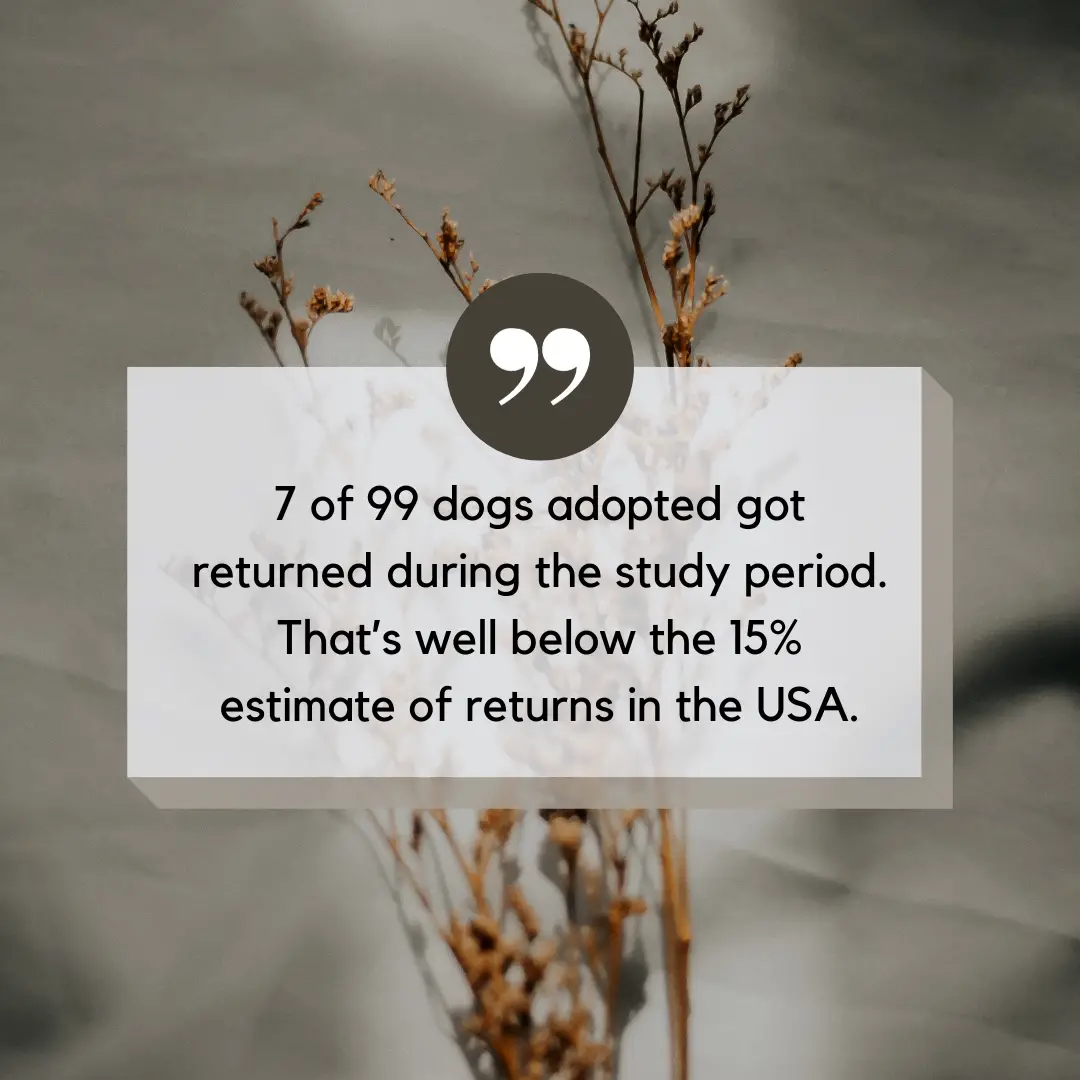
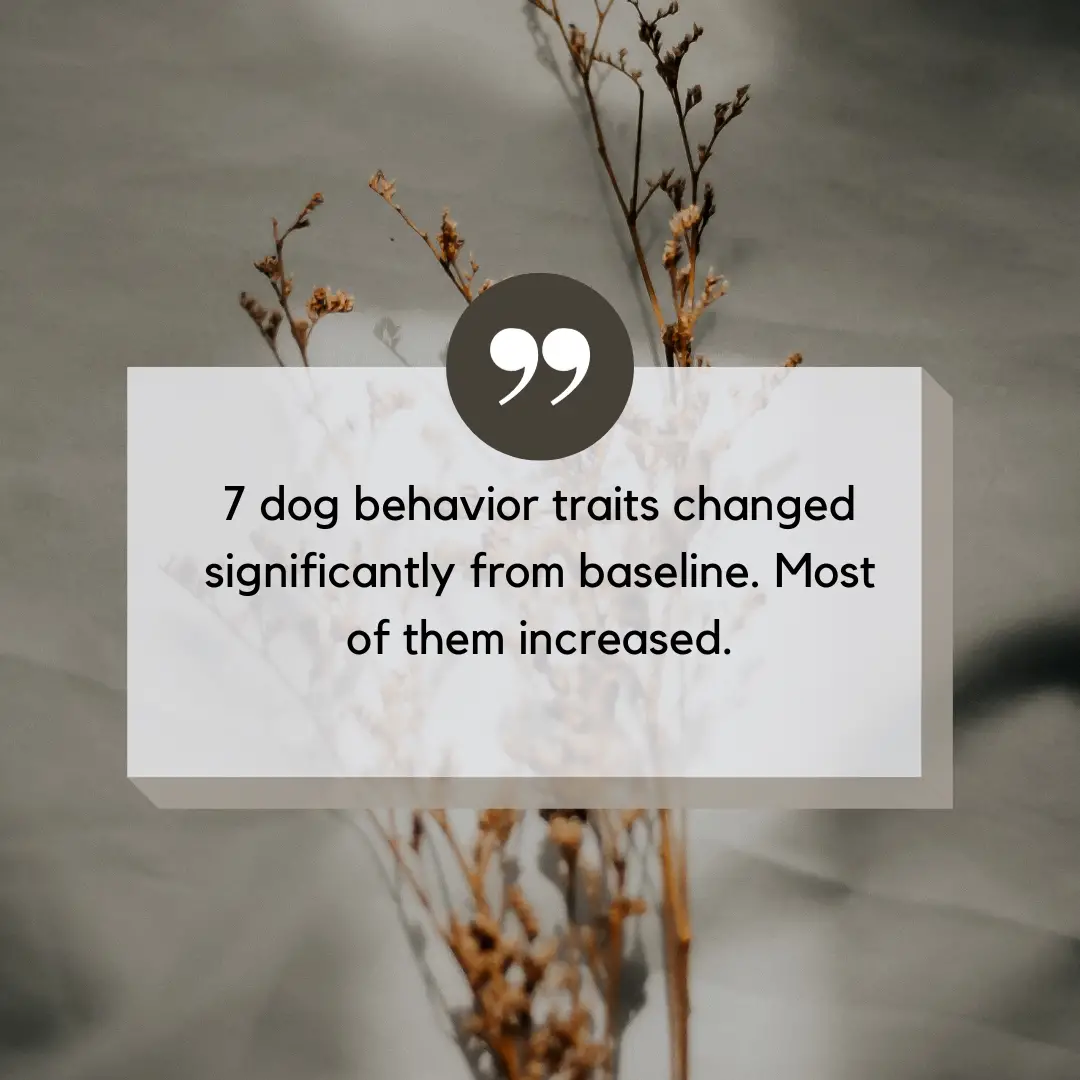
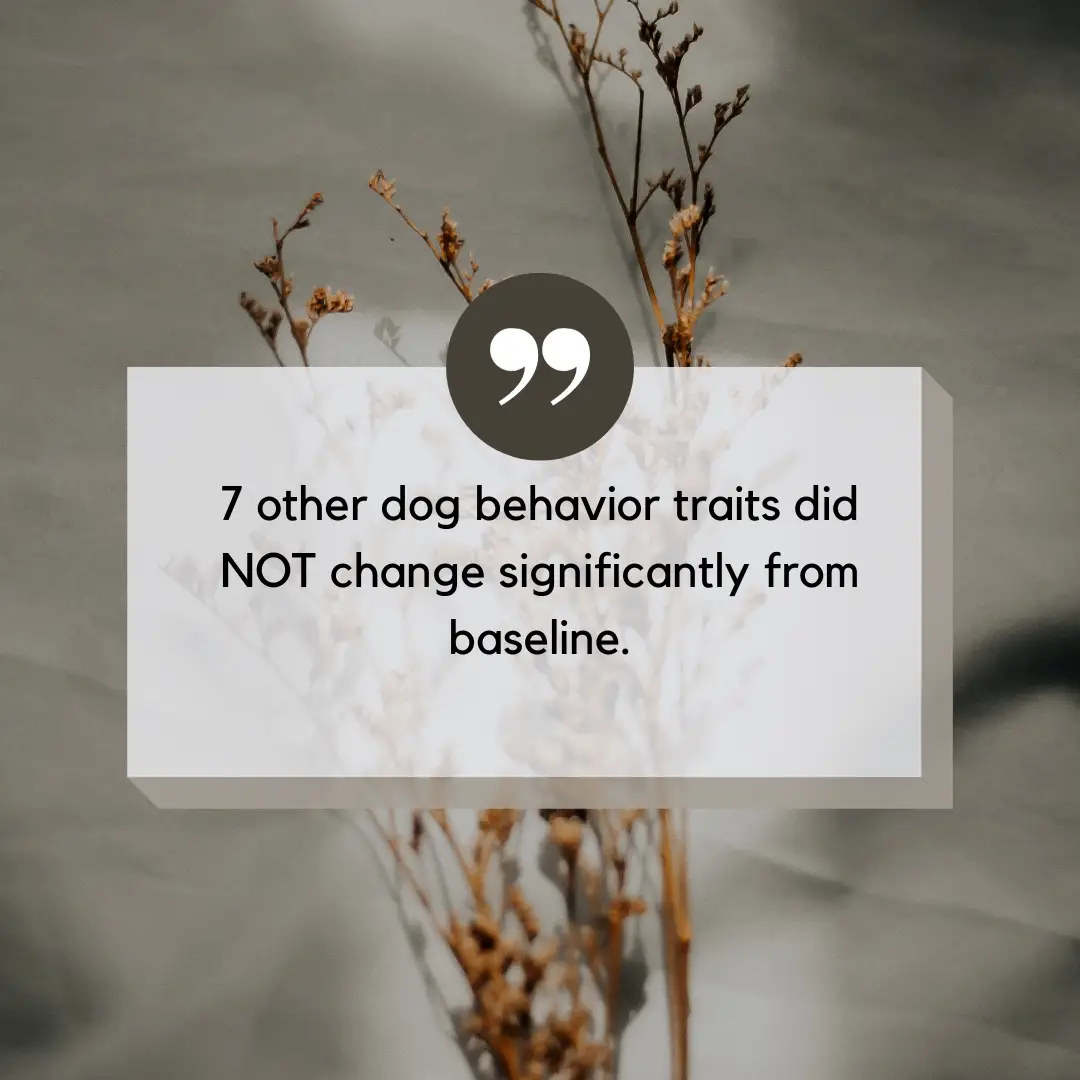
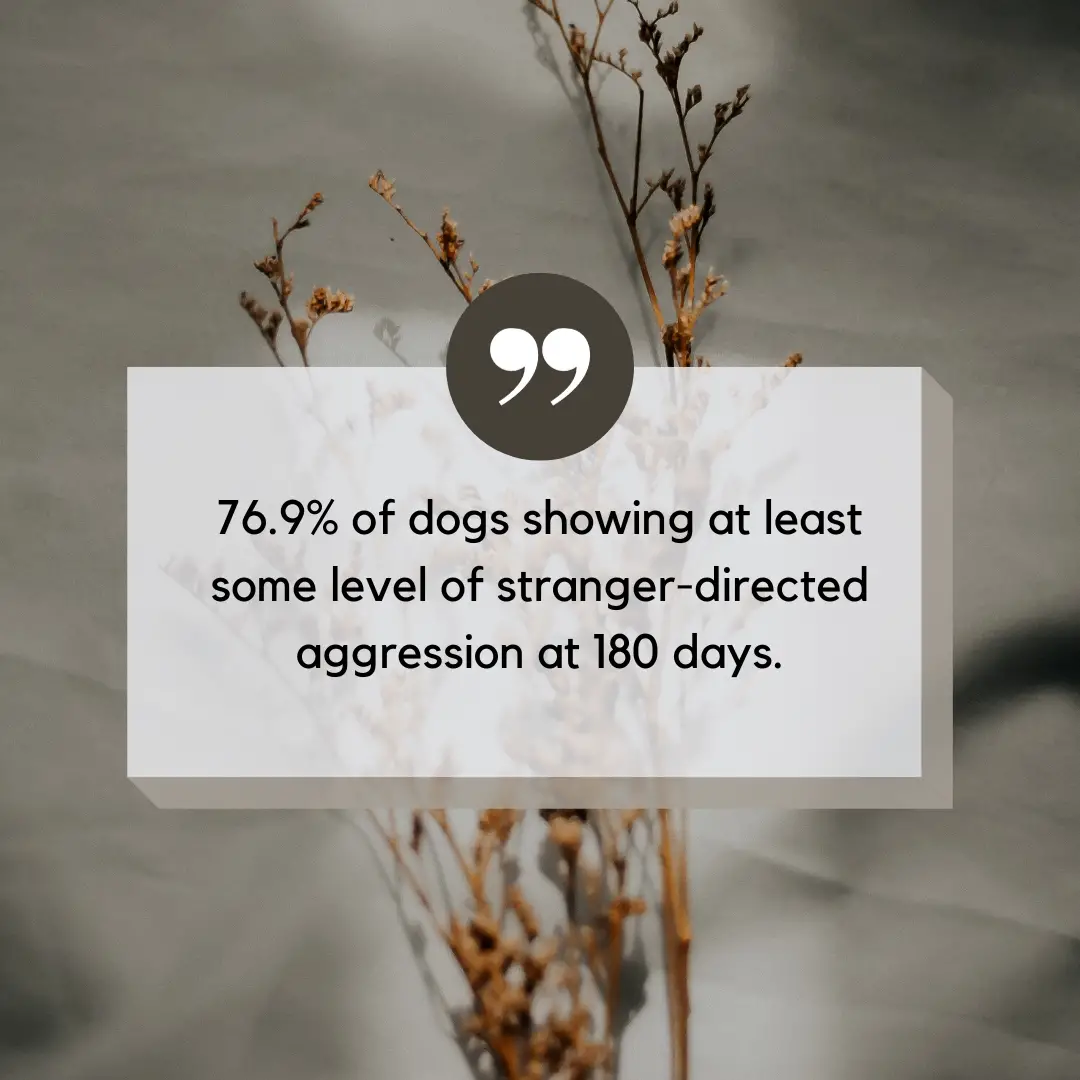

0 comments